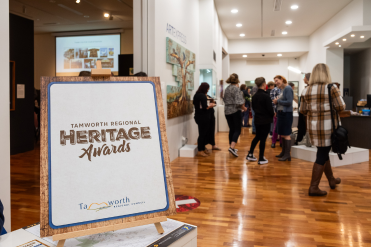The Fair Work Commission (FWC) review of the Social, Community, Home Care and Disability Services (SCHCADS) Industry Award review
is continuing. A range of claims for substantive variations were recently
lodged by various unions. Submissions in reply from employer parties are due on
5 April. Following that, a hearing will commence on 12 April and may continue
to 18 April, if necessary. NDS has been represented in the FWC during the Award review by Jobs Australia
(JA). JA is currently analysing the union claims and is likely to oppose a
number of them. JA would like to hear from NDS members keen to provide witness
evidence of client needs and operational requirements such as service rosters.
Members interested in assisting JA with submissions or witness appearances
should contact Paul Musso at emailProtector.addCloakedMailto(“ep_e098d82d”, 1);.
In early 2017, employer groups and unions reached agreement on several
Award-related issues and filed a joint submission in support of those proposed
changes. These included matters such as a client cancellation policy, remote
response work and paid travel time. In exchange, a range of other proposed
claims were withdrawn by both unions and employers. At the end of 2018, the
Australian Industry Group (Ai Group) intervened seeking to oppose the joint
submission. Ai Group has raised a number of issues, but their central concern relates to
travel time. Employers represented by Ai Group are concerned that the NDIS does
not adequately recognise or fund this type of travel. Our position has been
that there is an industrial obligation that cannot be avoided on the basis of
inadequate pricing and that this does create a real problem. Recent
conciliation conferences in relation to the Ai Group intervention have made
progress on clarifying some drafting issues. However, the status of the joint
submission remains unresolved at the moment, and travel time is the main point
of contention. It is expected that the full bench will make a provisional decision around the
middle of the year, with a further opportunity for parties to lodge submissions
about the drafting of any proposed changes. Federal Legislation passed in December 2018 modified the process for amendments
to Modern Awards, with bipartisan support. The new provisions of the Fair Work
Act remove the need for formal four-yearly reviews of Modern Awards. Parties
will be able to apply to the FWC to have Award clauses modified at any time. Consequently, it is extremely important that ongoing data collection is
conducted that ensures employer representatives can initiate or respond to
applications to vary the Award at any time. There is no large scale data set on
the disability workforce which aligns neatly with the disability sector.Award review issues that require close monitoring in the context of the NDIS
include provisions for sleepover arrangements, travel time, and a general trend
toward casualisation. While casualisation is not an award issue as such, the
interaction between NDIS pricing and award provisions regulating casual and
part-time employment arrangements and hours of work remains highly relevant.
NDS is concerned that NDIS pricing has the potential to act as an impediment to
the attraction and retention of a skilled and capable workforce. In December 2018, NDS Workforce Wizard collected data from 187 organisations,
comprising of 41,119 workers in the disability and allied health sectors. While
disability service providers are hiring more casual workers, the trend towards
increased casual employment since 2015 appears to have stabilised. The average
proportion of casual employment increased from 40.9 per cent in September 2015
to 45.2 per cent in December 2018. However, it has remained at around 45 per
cent since September 2017, with the exception of the September 2018 quarter
(47.3 per cent).Casual employment case law updateA number of Federal Court cases have established new case law on what
constitutes casual employment. There are changes proposed to the NES as part of
a response by government to these recent cases. Australian Business Industrial (ABI) have lodged an application in the SCHCADS
Award review seeking recognition of a new type of employee engaged under a
‘flexible ongoing employment’ arrangement. Workers hired under the proposed
‘flexible ongoing employment’ category would receive a 10 per cent loading on
top of the permanent employee hourly wage rate, in exchange for flexible
rostering subject to certain weekly minimum hours. Two hours per week are
proposed for disability support workers, which aligns with the minimum shift
time in the Award. Unlike casuals, flexible ongoing employees would be covered
by benefits available to permanent employees under the National Employment
Standards, including accrual of leave based on hours worked. Unions have indicated
they will oppose the proposal, citing the minimum weekly hours of engagement
(from one to three hours) as unacceptable. NDS will monitor developments in this area and notify members of any
implications. NDS’ relationship with JANDS has been working with Jobs Australia to re-invigorate a long-term strategic
relationship with a new emphasis on data collection. NDS and JA are discussing
how to add value to IR advice and support provided by JA as a member benefit.
NDS members are currently eligible for a discount on the fee for associate
membership of JA. NDS and JA will examine ways to collect and collate data resulting from NDS
members (and other providers of disability services) seeking advice from JA and
data collection that identifies issues that may merit applications to vary the
SCHADS Award. We will keep members informed of developments in this area.
Latest developments in SCHCADS Award Review
/Public Release. View in full here.








